It’s the only state in the U.S. where support for Israel is as official as its state-issued motor-vehicle license plates. In 2014, when entrenched hostility toward the Jewish state inhibited pro-Israel Americans from speaking out, South Carolina dug its wheels in.
U.S. Ambassador to the UN, Nikki Haley, then Governor of South Carolina, signed a law permitting the state’s Department of Motor Vehicles to issue special license plates bearing a “South Carolina Stands With Israel” message.
The law made headlines, and for Chabad of Charleston and the Lowcountry—the sponsoring organization that brought the idea to Representative Alan Clemmons—the vanity plates represented another dramatic achievement.
“This was a particularly difficult time for Israel, and as we sat at the table one day talking about how we can harness the support South Carolinians feel for the Jewish homeland, we came up with this idea,” explains Rabbi Yossi Refson.
Refson and his wife Sarah, Chabad representatives to America’s “Holy City” since 2008, have a talent for inspiring the kind of grassroots activism that has transformed the Jewish experience for their city’s Jews. In the words of Jeremy Anspach, a local resident, they are “catalysts” who have sparked interest and a new reality for Charleston’s Jewish community.
Anspach, the CEO and co-founder of PureCars, is one of several locals who took a leading role in the development of Charleston’s spanking new Chabad center. The 34-year-old, originally from Detroit, had been coming frequently to the Refsons for Shabbat dinner when he noticed the number of guests climbing week after week.
“People were sitting on the porch—there was no room inside. So I began to softly nudge Yossi to move to a bigger space.”
One of the oldest Jewish communities in the United States, Charleston enjoys a rich Jewish history dating back to 1695—the earliest year on record of a Jew living in the city. Its early Jewish communities were made up of Sephardic Jews who immigrated from London and the Netherlands in colonial days, following the expulsion from Spain and Portugal. In 1820, Charleston’s Jewish population grew to 2,000.
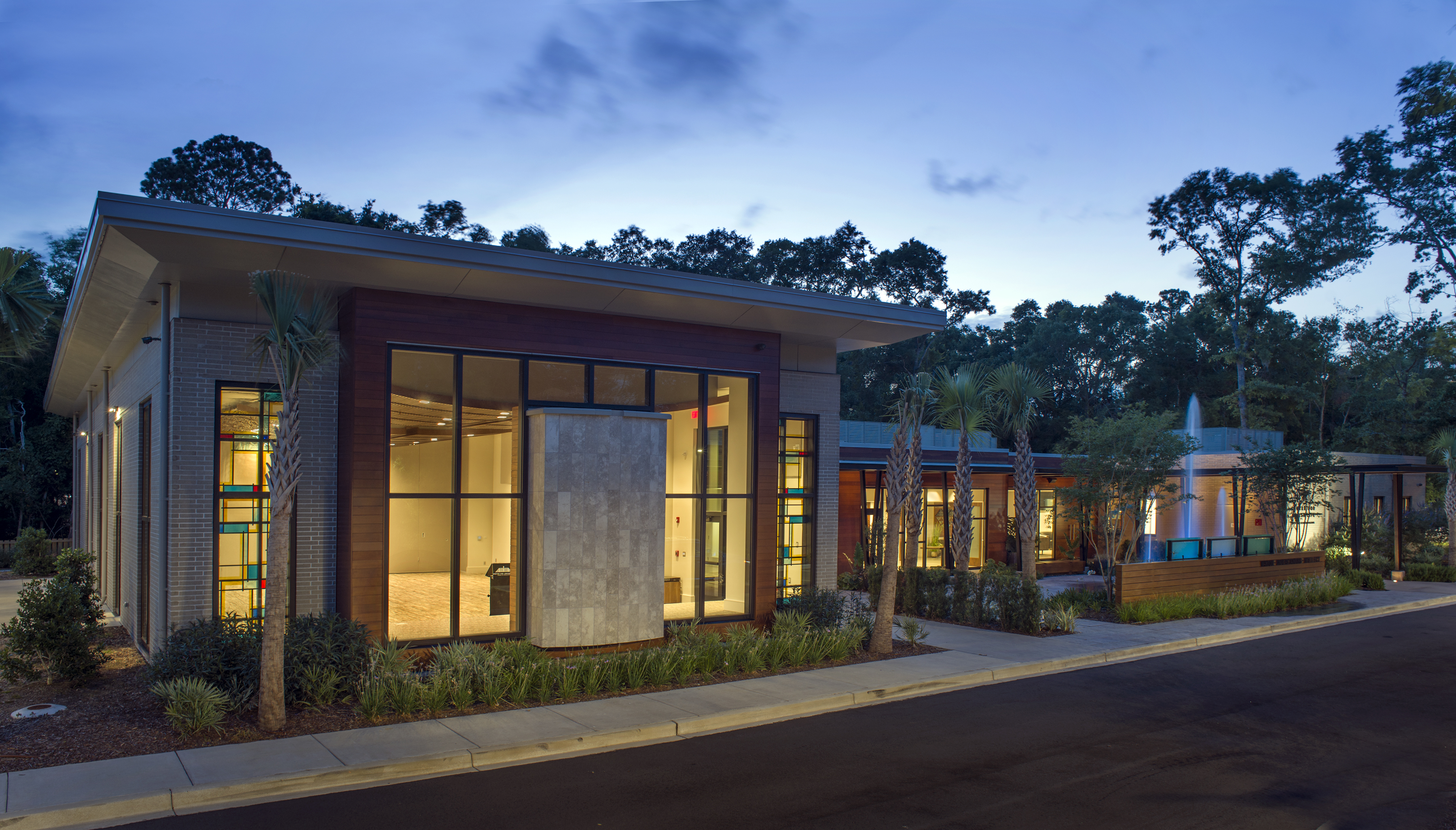
But new economic opportunities, mild climate and a good quality of life have recently made it an attractive destination for young Jewish entrepreneurs like Anspach, and for retirees like Murray Teiser. The plastic surgeon who traded his scrubs for golf clubs when he moved from New Jersey, says it doesn’t get better. “It’s ‘Gan Eden’ [paradise]. And to see what the Refsons have accomplished in this small community is really miraculous.”
Yossi and Sarah are remarkably low key, especially considering what they’ve accomplished in the span of only nine years. But the quiet confidence in their vision gave them staying power despite an icy reception by the community’s old guard. The British-born Chabad rabbi reflects on those difficult early days forgivingly. “The establishment was not pleased when we arrived. But in time they realized that we had no intention of competing with anything they were doing.”
Jerry Scheer, the owner of thirty eateries in South Carolina, was drawn to the Refsons for their fresh approach to Jewish life. “It wasn’t just spirituality. Rabbi Refson represents something beyond that. He’s not asking people to come listen to a lecture of dogma.” He and Sarah have put “heart” into a lifeless experience, introducing an interactive, living, breathing Judaism, and mobilizing people who hadn’t been involved in the Jewish community before.
When word got out that Chabad was looking for a new place, the restaurateur wanted in. So when he drove past a “for sale” sign on an ideally situated property one day, he quickly put a bid on it. “A lot of people in the community have skin in this game,” offers the Savannah native for whom the Star Scheer Building is named. “People come here because they want to. Because it’s a celebration of Jewish life. It’s not a museum.”
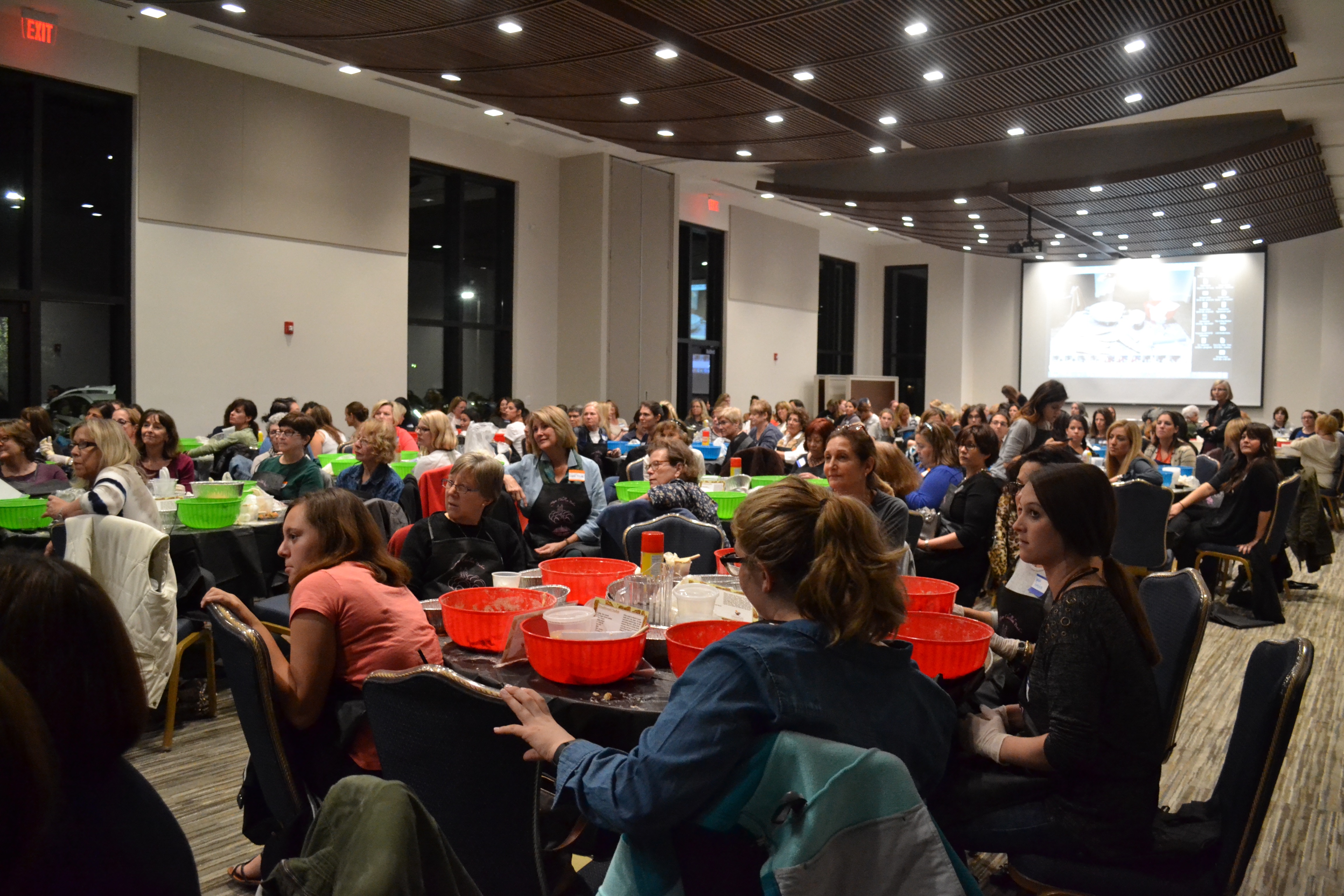
Sleek lines and the warmth of home create an unexpected harmony in Charleston’s Center for Jewish Life. Set back on three acres of wooded land at the foot of the Ravenel Bridge in the city’s Mt. Pleasant neighborhood, the architectural beauty is not, Anspach points out, a synagogue. “It’s an extension of the Refsons’ dining room.”
The vibe is lively, laid back and thoroughly inviting on a busy Wednesday morning in May. Freshly brewed coffee and comfortable sofas in the entry hall beckon people to sit and talk as the fireplace lights up in the backdrop. Family photos of the children, grandchildren and grandparents of Charleston’s Jewish residents cover the walls of the meticulously designed open plan dining room/kitchen at the heart of the Chabad Center.
Sarah explains the unique design concept, pausing to greet familiar faces and chat with parents who come to drop off their children at Chabad’s Preschool of the Arts. “We really want people to feel at home here.” It’s not about food, and the center does include a beautiful sanctuary that is used on Shabbat and as an elegant social hall for community events, she points out. “But it is about reigniting the joy of Jewish life, about home and family and creating a nurturing space for people to bond and community to grow.”
When she’s not working on the popular preschool or the fast growing Hebrew School she established, the Brooklyn born and raised Chabad emissary is leading women’s study classes and a host of other social events. This morning, some ten women show up to a weekly Torah class she leads. The youngest in the room by several decades, she is clearly adored for the Jewish model she and her husband have brought to Charleston. “It’s a dream come true,” says Harriet Stein, who grew up in the city but felt “removed” from Judaism until meeting the Refsons.
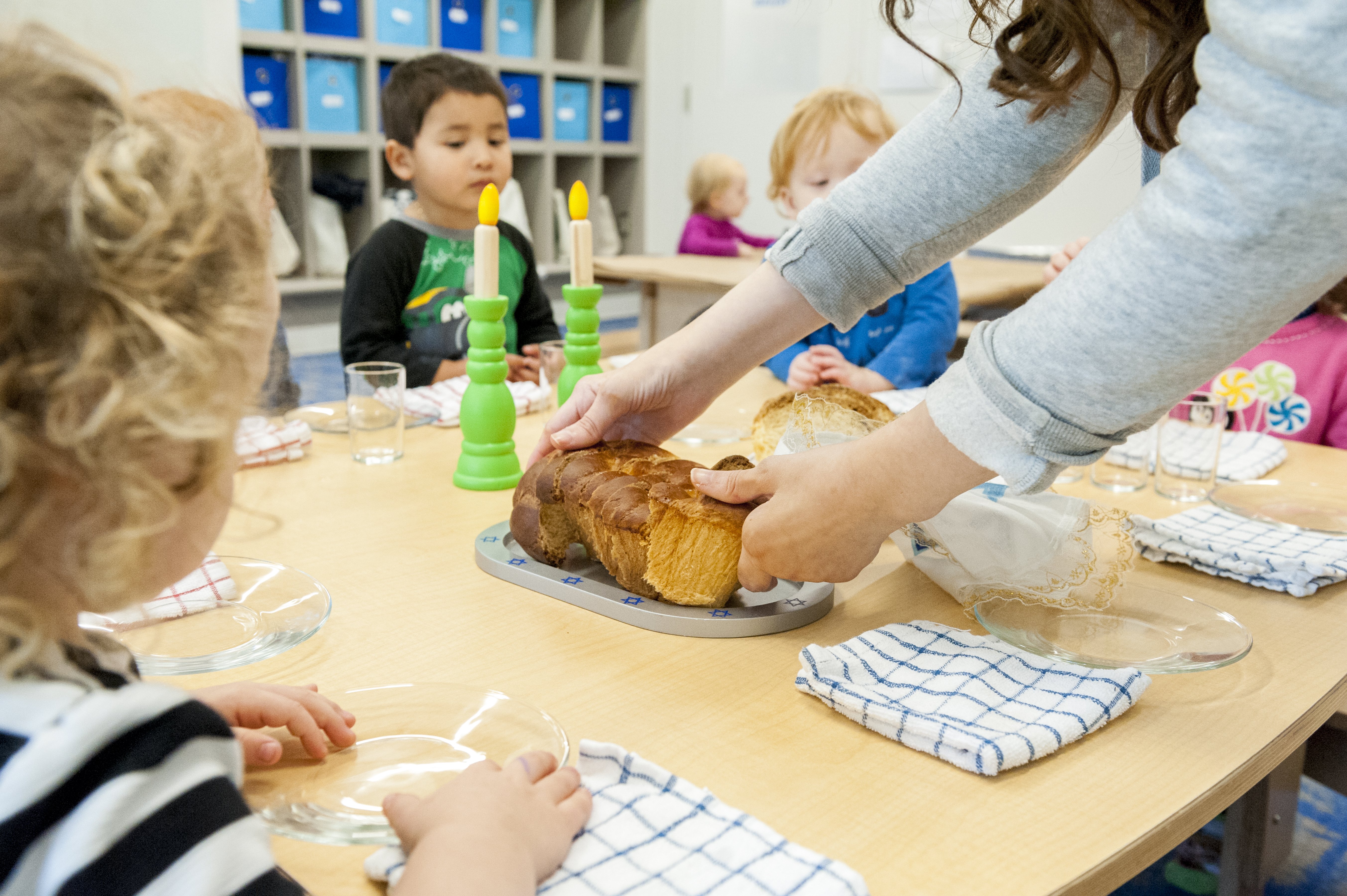
Tinted glass windows filter the sunlight that pours into the library where Rabbi Refson and Judi Corsaro, the CEO of Charleston’s Jewish Federation, are coordinating efforts respectively, as partner organizations in the Harold Grinspoon Life & Legacy Foundation. The Refsons, affirms Corsaro, are “visionaries” who saw a need in the Greater Charleston Jewish area. “They did an excellent job of engaging people in a low-barrier way.” The warmth and acceptance they exuded “made anyone and everybody fall in love with them.”
Corsaro is proud of the “symbiotic” relationship Charleston’s Federation and its city’s Chabad enjoy. She reflects on the less-than-ideal circumstances that greeted the Refsons when they arrived. Then working at Charleston’s JCC, she recalls the unconventional dynamic introduced by Sarah and Yossi, and the poor welcome by the city’s Jewish leadership.
Absent the support of the city’s Jewish establishment, and with no community membership list to work from, the young couple would have to feel their way around Charleston’s insular, set-in-its-ways community on their own. Yossi hit the streets, meeting Jews in the supermarket and at the gas station. He took to visiting patients in the local senior citizen homes and hospitals, and soon became a hospital chaplain which allowed him to connect with people personally.
They quickly warmed to him, and his invite list grew fast. Over long Shabbat dinners in the Refson home, Charleston’s Jews were discovering something new. The idea, says Yossi in his lilting British accent, was to “create positive Jewish experiences so that Jews would make Judaism a valuable and meaningful part of who they are.” More than that, “we wanted them to recognize that their success in life is a result of the distilled values that they’ve inherited; that Judaism didn’t hold them back but rather gave them wings.”
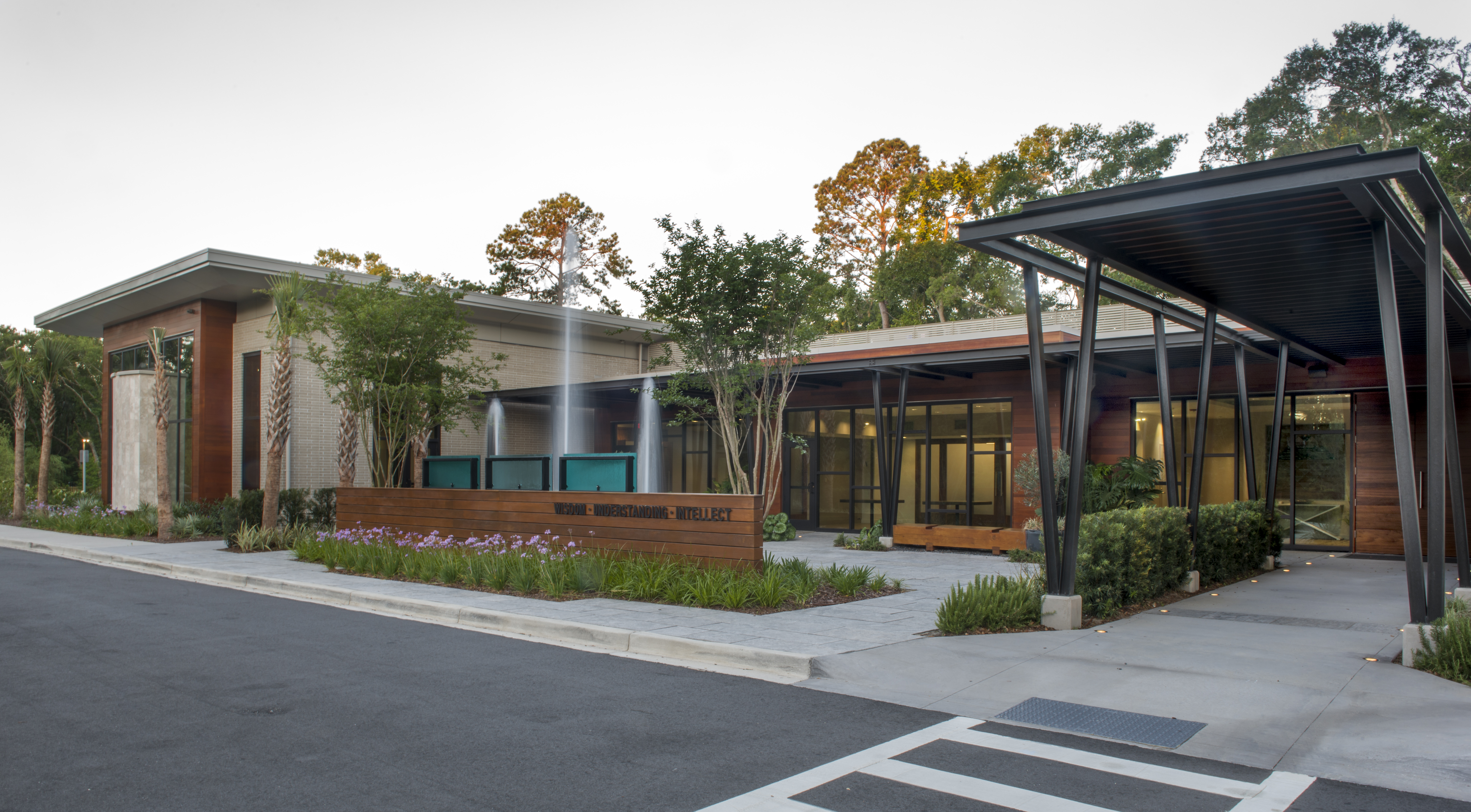
It worked. Like Anspach and Scheer, Rich Star, a real estate developer from Buffalo, New York, never felt this good about his Jewish identity. He grew up traditional, but negative experiences made him “dread” the Jewish holidays. Then he met Yossi. “His overall approach is different. My kids love coming here. I no longer dread it. Here it is positive—here they have a good feeling for being Jewish.” The Chabad couple, he says, “lead by example as opposed to telling people how to be. They’ve opened my mind to Chabad. I’m a believer in the mission.”
Encountering the Refsons’ contagious brand of inspired Judaism made Star want to get involved. Along with the others, he found himself passionately committed to seeing the new center take shape. “My desire,” says the businessman who sits on many nonprofit boards, “was to create an institution that makes people want to take another look at Judaism.”
So he put his support behind the project and brought his expertise to the table, consulting on the budget and attracting support and donor cultivation for the $6 million center and an endowment fund. About half of the funds, says the donor who dedicated the Star Scheer building, came from 300 people, some who donated $10 a piece. The fact that this is a non-membership group, he notes, is evidence of Chabad of Charleston’s “culture of love and warmth and community that just gives and gives.”
With her own ascendancy to the helm of the city’s Jewish Federation in 2010, Corsaro found that the two organizations could build relationships and respectful interactions on their shared vision of community. “We don’t all have to agree, but we’ve done a good job of coming together around the things that unite us.” Instead of seeing Chabad as competition, she recognizes its success filling a void that had gone unaddressed by anyone else. “The more Greater Jewish Charleston thrives, the better it is for every Jewish entity.”
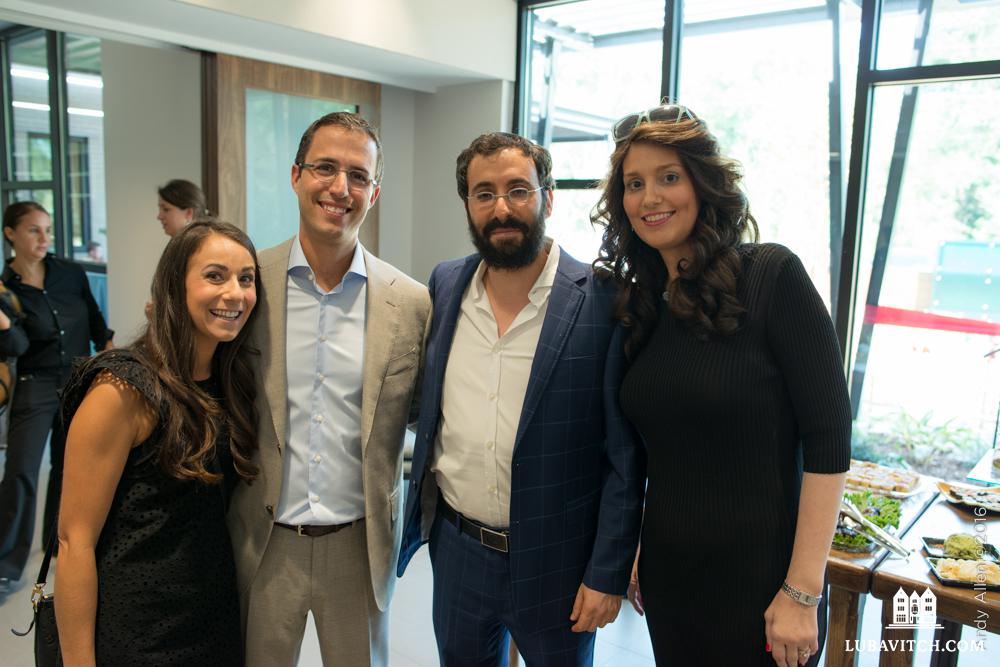
One thousand people showed up last September to celebrate the inauguration of the Anita Zucker Campus and the opening of the Star Scheer Building of the Charleston Center for Jewish Life. The diversity of people who came to honor the Charleston game changer was striking. “People you wouldn’t meet in a synagogue come to Chabad’s events,” Star says, noting that while traditional institutions are losing membership, Chabad is gaining.
There are bold plans on the drawing board for the Zucker Campus, dedicated by South Carolina businesswoman and philanthropist Anita Zucker. “The warmth and the spirituality of Rabbi Yossi and Rebbetzin Sarah have given so many of Charleston’s Jews a sense of belonging and community,” the CEO of InterTech Group, one of America’s largest private companies, offers.
The Refsons are humbled by the groundswell of support and the deep friendships that have formed over a love for Israel and Jewish life, around their dining table. “There really is nothing more gratifying to us than working with the incredible friends who have become family to us, to build a better Jewish experience. As Jews, we each have our own journey, and although we cannot know where it takes the people we bond with, we can be there for them, with them.”
Anspach would know. “Ten years ago,” he admits, “I never would have agreed to put on tefillin. But Chabad has done that for many people in the community. They add oxygen to the fire and make you want to get involved.”
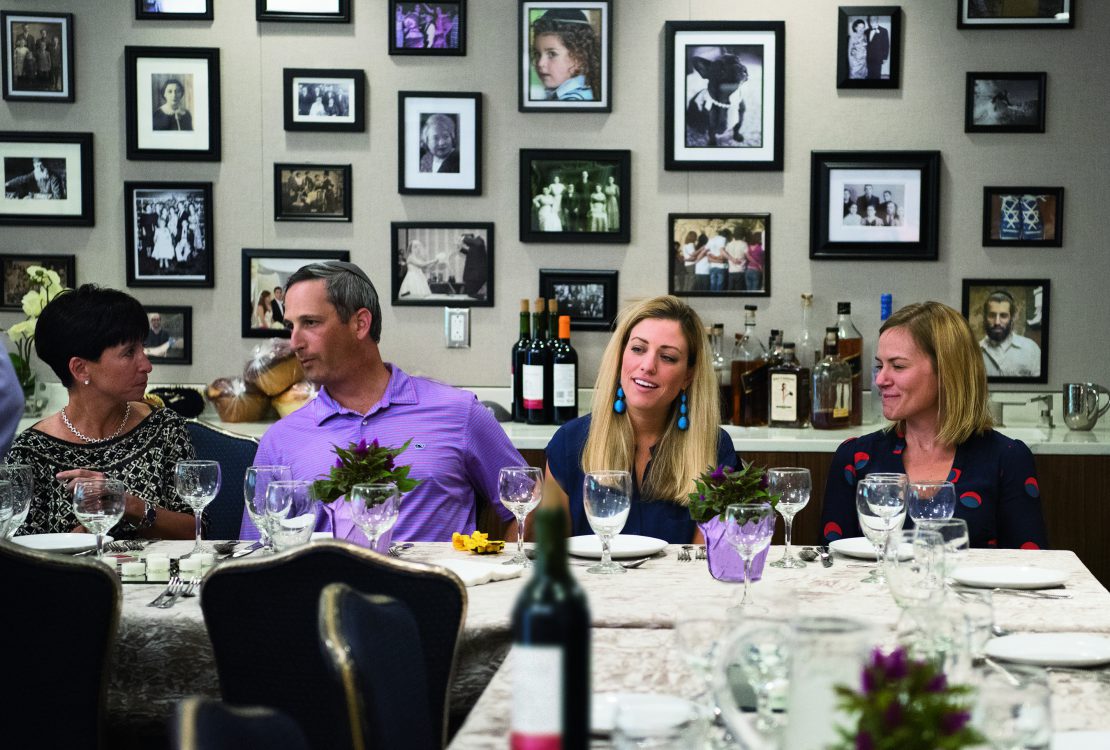
Be the first to write a comment.